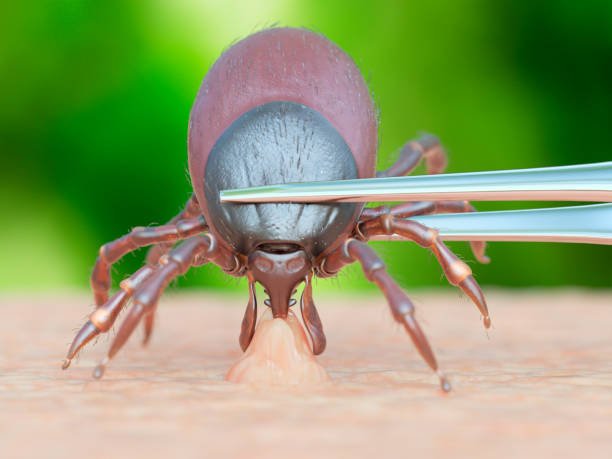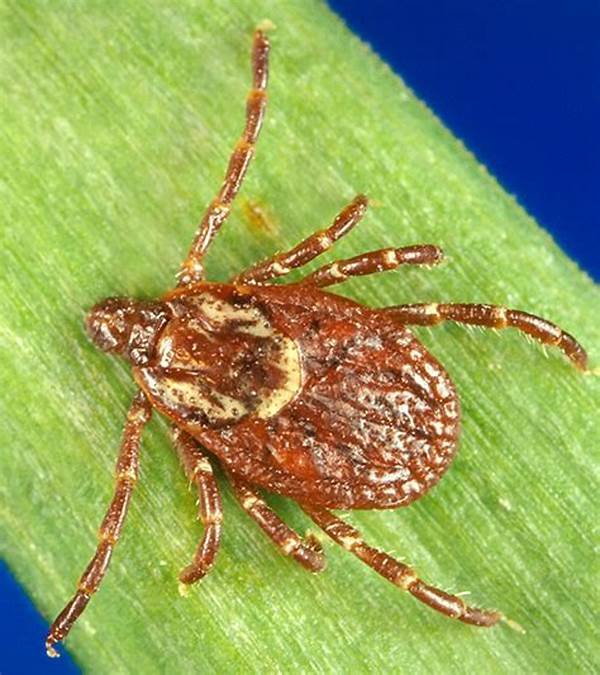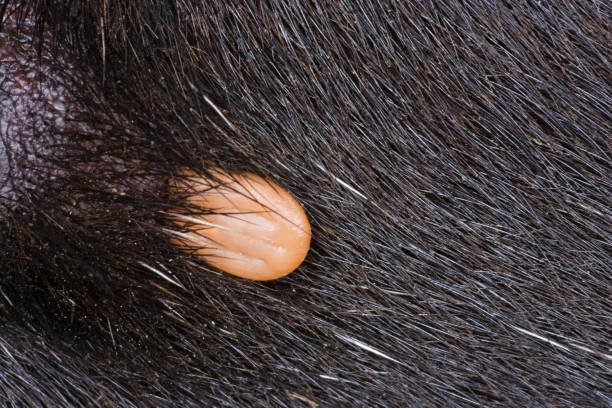The Maryland Department of Health announced the first case and death caused by Powassan virus in Maryland on October 6, 2023

The Maryland Department of Health confirmed the presence of Powassan, which is spread by the bite of an infected tick, on September 2022.

Ticks are arachnids, not insects, and they can be identified by their spider-like appearance, which includes four pairs of legs and a lack of antennae.
“We are saddened to report the first death due to Powassan virus in our state,” said Dr Nilesh Kalyanaraman, Deputy Public Secretary.
Health Services reported in a news release that Powassan virus disease “is very rare, and it is the first time it has been recorded in Maryland.”

The whole matter is such that this person got infected with the virus in Canada and somehow returned to Maryland. Urge everyone to completely avoid areas where ticks may be present
Tick infection is a very rare infection. It never spreads easily and is spread only through blood exchange.
To avoid this, avoid going to such places where there are tall, lush green bushes. Because those animals who have good health come here.

Ticks migrate to trees from where they reach humans. And to avoid this, it is very important to cover the entire body with clothes.
As far as possible, keep your pets free from parasites and try to get rid of them without using any synthetic chemicals. Because direct contact of this parasite from animals also affect humans.

If a tick gets attached to anyone’s body, try to get rid of it easily or consult a doctor.
Understanding the risks associated with Powassan virus and tick bites is important for prevention. Where tick predators are present Always take preventative measures when spending time in areas known to have ticks and seek medical attention if you experience symptoms after a tick bite.
FAQ Regarding Powassan Virus
1. What is Powassan virus?
Powassan virus is a rare but serious virus transmitted to humans by tick bites. It belongs to the family of viruses known as flaviviruses, which also includes the viruses that cause West Nile and dengue fever.
2. How is Powassan virus transmitted?
The virus is primarily transmitted to humans through the bite of an infected tick. The main vectors are the black-legged tick (Ixodes scapularis) and the groundhog tick (Ixodes cookei).
3. What are the symptoms of Powassan virus disease?
Symptoms can vary from none at all to severe and can include fever, headache, vomiting, weakness, confusion, seizures, and memory loss. In severe cases, the virus can cause meningitis (inflammation of the membranes covering the brain and spinal cord) and encephalitis (inflammation of the brain).
4. How soon after a tick bite do symptoms appear?
Symptoms can appear anywhere from a week to a month after being bitten by an infected tick. However, because the virus can cause severe neurological damage, any potential exposure to tick bites followed by unusual symptoms should prompt immediate medical attention.
5. Is there a treatment for Powassan virus disease?
There is no specific treatment for Powassan virus disease. Medical care is supportive and focuses on treating symptoms. In cases of severe illness, hospitalization may be required to provide fluids, respiratory support, and management of swelling in the brain.
6. How can I prevent Powassan virus infection?
Preventive measures include using insect repellents, wearing long sleeves and pants when in tick-infested areas, avoiding bushy and wooded areas with high grass, and conducting thorough tick checks after potential exposure. Creating tick-safe zones in your yard can also reduce tick populations.
7. Can Powassan virus be transmitted through blood transfusions or organ transplants?
As of my last update, there have been no documented cases of Powassan virus transmission through blood transfusions or organ transplants. However, the possibility cannot be entirely ruled out for this and other tick-borne viruses.
8. Is there a vaccine against Powassan virus?
No, there is currently no vaccine available to prevent Powassan virus infection. Research into tick-borne diseases continues, but prevention remains centered around avoiding tick bites.
9. How is Powassan virus diagnosed?
Diagnosis is typically made through a combination of clinical symptoms and laboratory tests, including tests that detect antibodies to the virus in the blood or cerebrospinal fluid (CSF) or by PCR (polymerase chain reaction) testing of CSF.
10. Are certain regions or people at higher risk for Powassan virus?
Yes, people who live or spend time in wooded areas in the Northeastern and Great Lakes regions of the United States are at higher risk for Powassan virus due to the prevalence of ticks in these areas. Outdoor workers and individuals engaging in recreational activities in these regions are also at increased risk.